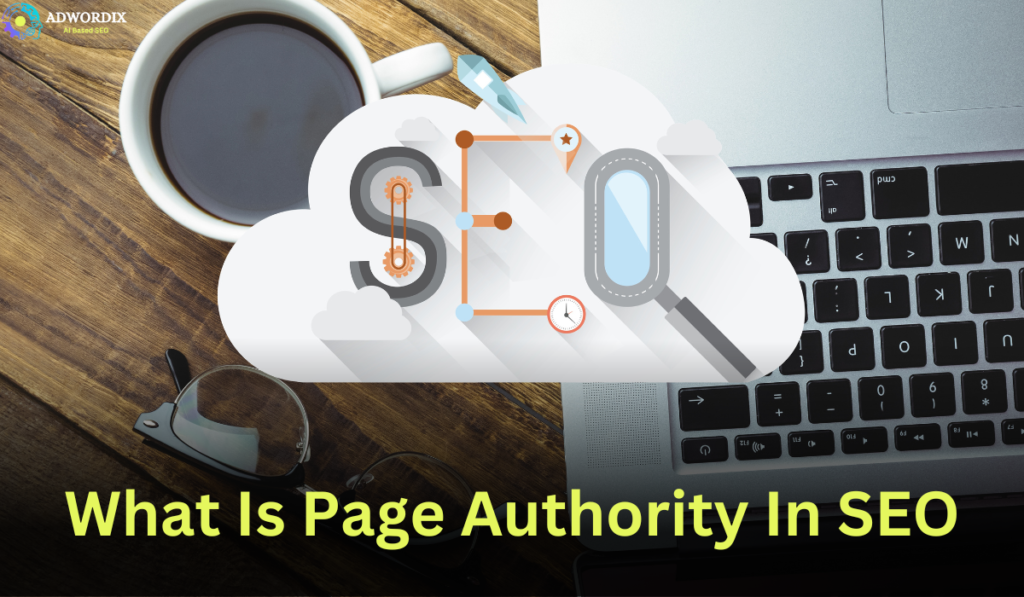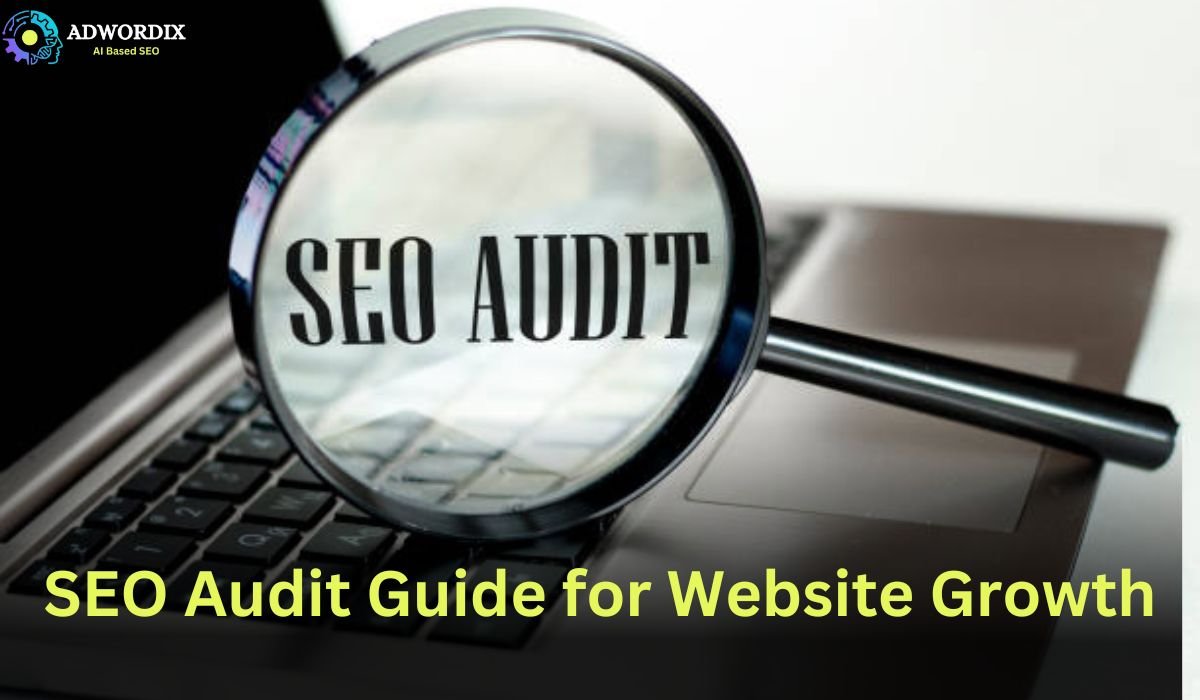Page Authority (PA) is an essential metric in Search Engine Optimization (SEO) that evaluates the likelihood of a webpage ranking well on search engine results pages (SERPs). Developed by Moz, Page Authority scores range from 1 to 100, with higher scores indicating a greater likelihood of ranking. This metric is influenced by factors like the quality and quantity of backlinks, content relevance, and user experience.
Knowing what is Page Authority in SEO is helps to make a site better by pinpointing which pages need optimization. Whether you manage a blog, business web page, or online shop, improving the highest Page Authority will help improve your site’s visibility and subsequently get more organic traffic.
In this guide, we share important factors that influence Page Authority while enhancing it with workable methods for trying to improve it. By applying the right principles, you will boost your ranking ability and also access your audience. Let us now get started!
In this guide, we’ll explore Page Authority, its importance, and actionable steps to boost your rankings effectively.
Understanding Page Authority
Page Authority (PA) is a score that predicts how likely a specific webpage is to rank in search engine results. It’s a helpful metric for understanding which pages of your website are performing well and which need improvement.
Key Features:
- Scored between 1 and 100.
- A higher score means better chances of ranking.
- It uses factors like backlinks, content quality, and user experience.
How is Page Authority Different from Domain Authority?
While Page Authority focuses on individual pages, Domain Authority measures the ranking strength of your entire website.
Feature | Page Authority | Domain Authority |
Focus | Individual pages | Entire domain |
Influenced By | Backlinks to a page | Total backlinks to a domain |
Use Case | Optimize specific pages | Evaluate overall site health |
Factors Influencing Page Authority
Backlink Quality and Quantity
Backlinks are links from other websites that direct traffic to your page. These are the ‘votes of confidence’ for your page; the higher the number of high-quality backlinks it has, the higher the Page Authority that will be achieved by that page.
High-Quality Backlinks:
- Comes from a renowned high-authority website.
- Is relevant to your content.
Avoid Low-Quality Backlinks:
- Related low-quality or unrelated links can hurt Page Authority.
Content Quality:
The search engines prefer pages for quality-rich content relevant to the users and their requirements.
- Concentration would be on:
- Use keywords within the content and naturally
- Bringing in pioneering and useful ideas.
Technical Optimization
A well-functioning website is key to good rankings. Ensure:
- Fast Loading Speeds: Slow pages frustrate users and hurt rankings.
- Mobile-Friendliness: Many users browse on mobile devices, so your page should look great and work smoothly on smaller screens.
Internal Linking
Internal links connect pages within your website, making it easier for users and search engines to navigate. They also distribute “link juice,” which boosts the authority of linked pages.
Best Practices:
- Use clear and descriptive anchor text for clickable links.
- Link to relevant and important pages.
Effective Strategies to Improve Page Authority
There is no quick fix to increase Page Authority. It requires persistence and know-how. Below are some primary ways to rank your pages effectively.
High-Quality Content
- Content forms the basis of every successful SEO effort. Pages with useful, entertaining, and well-structured content are capable of attracting backlinks and retaining visitors.
Popular Content Types That Perform Well:
- How-To Guides: Step-by-step solutions to common problems.
- Case Studies: An in-depth analysis of real-life situations.
- Infographics: Very shareable and visually appealing data presentations.
Build Strong Backlinks
Earning backlinks from authoritative sites in your industry enhances your credibility and search rankings.
Quality Link-Building Techniques:
- Publish content that has unique value and encourages sharing.
- Do guest blogs with other reputable sites.
- Broken-link-checking methods involve first finding outdated links on another site and offering your page as a replacement.
Optimising Internal Linking:
Having strategic internal linking capabilities works like a treat for user navigation as well as fortifying the authority of linked-to pages.
Best Practices in Internal Linking:
- Link from high-traffic pages to important content that is less known.
- Audit regularly to fix broken or obsolete links to give users smooth sailing.
By continuously putting these methods in place, you will be able to further enhance your Page Authority, rise with search rank improvements, and bring in a greater volume of organic traffic to your site.
Tools to Measure and Track Page Authority
Recommended Tools
Utilize tools like Moz, Semrush, and Ahrefs to measure and track your Page Authority. For anyone wondering What are DA and PA in SEO, tools like these will give you a tangible sense of both of them. DA stands for Domain Authority, which measures the strength of your entire website as a collective entity, while PA stands for Page Authority and pertains more to the potential of ranking for individual pages.
- Moz: The original creators of Page Authority and Domain Authority.
- Semrush: Provides details of backlinks, rankings, and both DA and PA metrics.
- Ahrefs: A good option to analyze competitors’ backlinks, authority scores, and content performance.
How to Use These Tools
- Enter your page URL.
- Check Page Authority along with other available metrics like backlinks and referring domains.
- Work on your score against competitors by identifying the areas you need to improve.
Action Plan for Beginners
If you’re just starting with Page Authority improvement, here’s a step-by-step plan to help you get on the right track.
- Evaluate Current Pages: Use SEO gadgets like Moz, Traffic Semrush, or Ahrefs to investigate their current Page Authority scores and find pages that require improvement and thus have low ranks. According to the results, underperforming pages can be organized and set for optimization to make things easy for you to focus efforts where they need some improvements most.
- Improve Content Quality: Revise and refresh pages with low rankings by adding useful context and appropriate keywords as well as new information. This high-quality and well-organized content keeps the users entertained and maximizes the chances of receiving backlinks.
- Earn High-Quality Backlinks: Guest blog to reputable sites or organizations for a mutual exchange of good content. Spread some of your most important articles/concepts so that potential other pages may link back to them. Making friends with experts in the industry is important as they will enhance the chances of acquiring quality backlinks.
- Internal Linking Optimization: Conduct an extensive audit of internal links and repair broken ones or update with a more appropriate link. Link the high-performing pages to low-performing ones with descriptive and relevant anchor text for user-friendliness and SEO improvements.
- Potentially Make Mobile Friendly: Ensure that the responsiveness and mobile compatibility of your website are maintained by optimizing speed and design. Uninterrupted mobile access raises user engagement and helps with search rankings.
- Tracking and Monitoring: Use analytical tools like Google Analytics and Google Search Console to track your progress. Monitor your Page Authority scores regularly and adapt strategies where needed.
- Promote Your Content: Share your pages through social media, industry forums, and online communities to increase your content’s visibility. The more exposure your content garners, the likelier it will earn backlinks and engage users.
- Keep Content Updated and Relevant: Update your content frequently with the latest trends, stats, and industry changes. Search engines favor fresher pages, so those increase the likelihood of ranking.
By continually following the action plan, you will bolster Page Authority, increase search ranking, and develop a firm basis for prolonged SEO prosperity.
Conclusion
The page authority ranks among the top success factors of SEO. All these results are possible when and only when you keep producing high-quality content, well-built backlinks, and an internal linking structure for your page. An expert SEO company combined with SEM services can help increase the growth in the long run.
Start adopting them to make a difference, and in time, you will begin enjoying the boost in the page authority and performance of your website overall.
Frequently Asked Questions
Page Authority (PA) is a score developed by Moz that predicts how well a specific webpage will rank in search engine results pages (SERPs). The score spans from 1 to 100, with higher values reflecting a greater likelihood of ranking.
While Page Authority measures the ranking potential of an individual webpage, Domain Authority assesses the overall strength and ranking potential of an entire website. Both metrics are useful for improving SEO strategies.
Key factors include the quality and number of backlinks, the relevance and uniqueness of content, and the overall user experience, such as page speed and mobile-friendliness.
You can improve Page Authority by creating high-quality, engaging content, earning backlinks from authoritative websites, optimizing user experience, and regularly updating your pages with fresh information.
White hat SEO involves ethical, long-term strategies like creating quality content and earning natural backlinks. In contrast, black hat SEO relies on manipulative tactics like keyword stuffing and buying links, which can lead to penalties from search engines.





